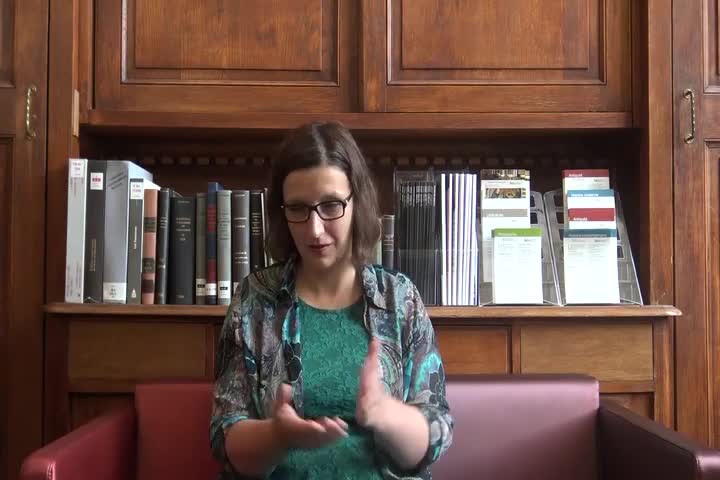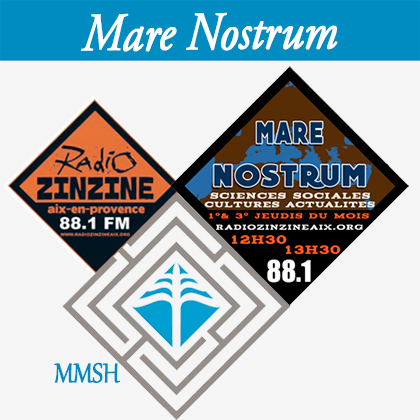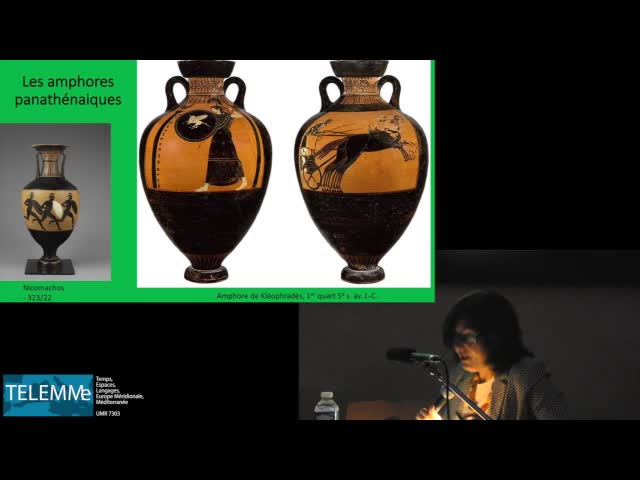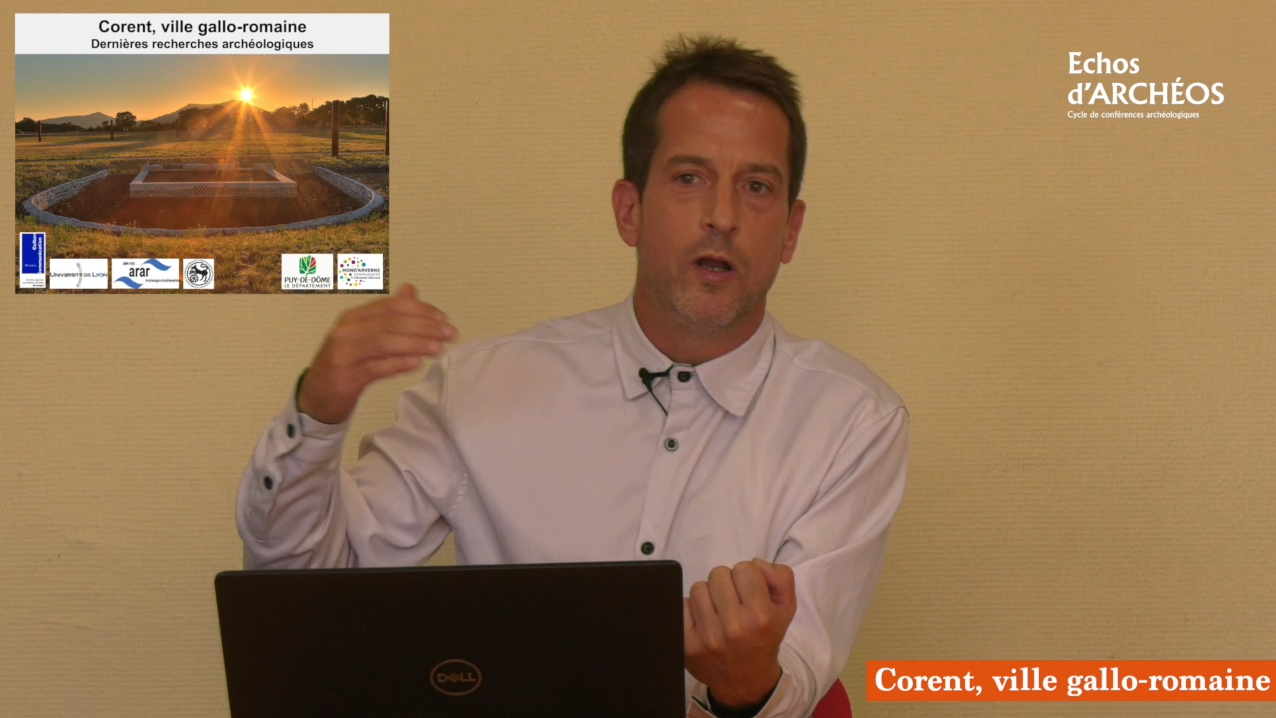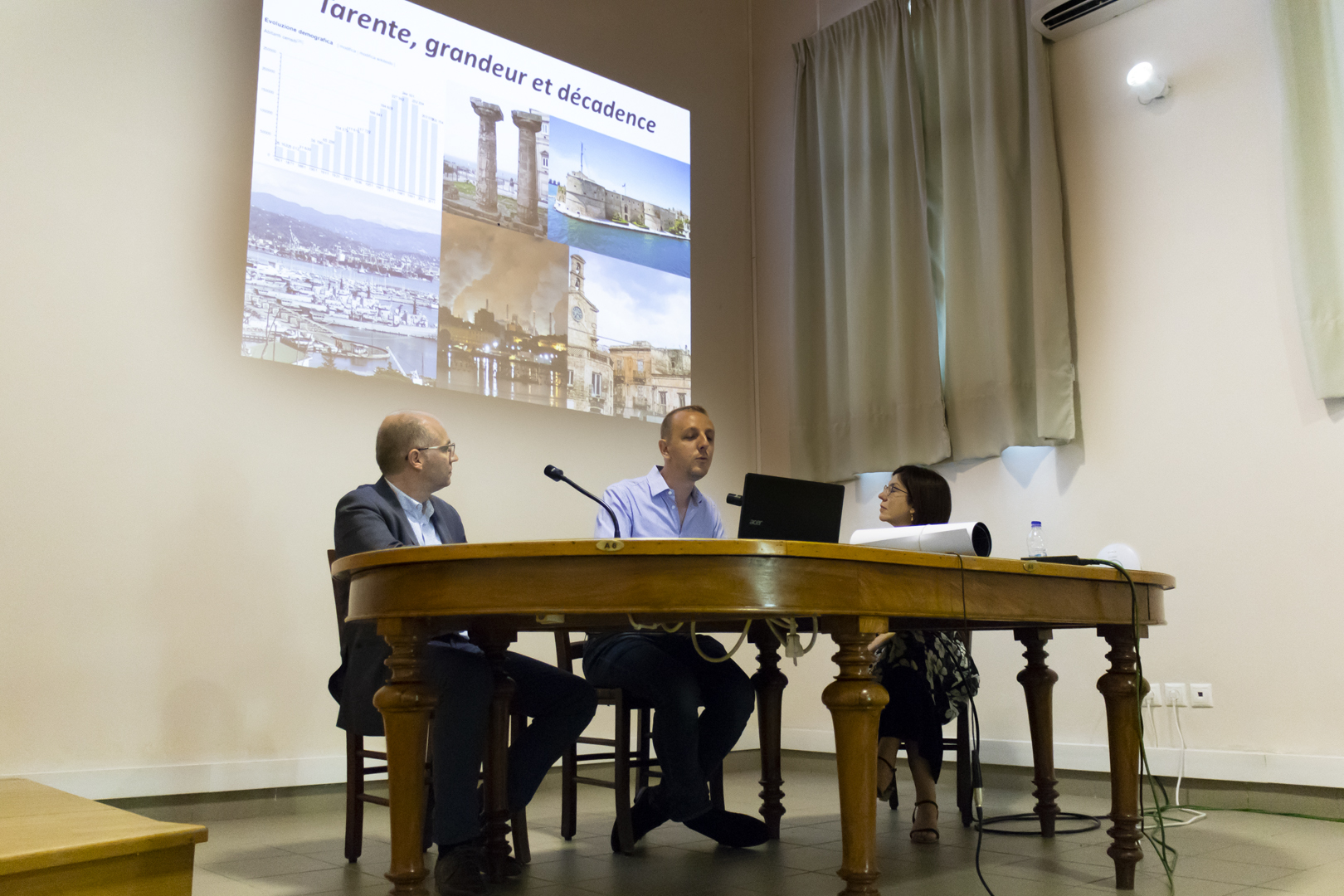Notice
Harbour Cities as Vehicle of Cultural Identity: the Case of Hellenistic Gaza and Ashkelon
- document 1 document 2 document 3
- niveau 1 niveau 2 niveau 3
Descriptif
The strategic position of the port cities of Ashkelon and Gaza within the geography of the Near East made them crossroads of trades and cultures from the Early Bronze Age onwards. As junctions between the Via Maris, the trade route that run along the coast connecting Egypt with Phoenicia, Syria, and Anatolia, and the frankincense route that stretches from the Mediterranean through the Negev until India and beyond, Gaza and Ashkelon had experimented a continuous passage of peoples that had shaped their cultural and religious horizons.
However, the two cities proved the maintenance of a strong local identity through time shown by the survival of their ancestral deities, as well as the self-representation left by their citizens around the Mediterranean. Through the analysis of Hellenistic epitaphs of Ashkelonite and Gazan merchants dead abroad, the continuity of worshipping of local deities, and the syncretism that involved them, Ashkelon and Gaza will be presented not only as junctions and cross-roads of identities, but also as carriers and vehicles of a strong cultural originality. Moreover, from this analysis, also the extent of their intrinsic Mediterranean dimension will emerge.
Session 3 Culture et identité - Modérateur : Gil Gambash (Université de Haifa, HCMH).
Intervention / Responsable scientifique
Thème
Dans la même collection
-
Opus pilarum: fonti, iconografia e topografia archeologica litoranea
FeliciEnricoNella pittura murale romana, i porti (come spiega Vitruvio) e le ville marittime o lacustri sono soggetti ricorrenti. Tuttavia, entrambi questi temi ponevano alcuni problemi grafici: i porti erano
-
Introduction à l'Atelier de la Méditerranée "Ports et zones portuaires de la Méditerranée Antique",…
MarinBrigittePouzadouxClaudeCet Atelier rassemble des spécialistes engagés dans divers contextes géographiques et chronologiques autour de la Méditerranée. À travers les recherches et les cas d’étude qui sont présentés, l
-
Communication, Trust, and the Formation of Multi-Layered Urban Communities in the Medieval Mediterr…
GutgartsAnnaTwo concomitant processes shaped the Mediterranean during the high middle ages (11th-13th centuries), namely urbanization and the expansion of the frontiers of Latin Christendom. This yielded rapidly
-
L’Urbs e i suoi porti. Magazzini e dinamiche di stoccaggio tra Ostia, Portus e Roma
MimmoMilenaBukowieckiÉvelyneSituato alla foce del Tevere, il sistema portuale Ostia-Portus, provvisto di una fitta rete di magazzini, assicurò per tutta l’Antichità la ricezione delle enormi quantità di merci provenienti dal
-
Le port romain de Marseille revisité: nouvelle approche et perspectives de recherches
PawlowiczMarieDepuis septembre 2018, l’étude de la corne du port de Marseille à l’époque romaine (Ier – IVe s. apr. J.-C.) a été reprise dans le cadre d'une thèse réalisée au sein du Centre Camille Jullian. Fouillé
-
Conclusion de l'Atelier de la Méditerranée "Ports et zones portuaires en Méditerranée antique"
GambashGilConclusion de l'Atelier de la Méditerranée "Ports et zones portuaires en Méditerranée antique"
-
Partenope, Neapolis e la fronte del porto
GiampaolaDanielaThe paper concerns the theme of the coastal landscape of ancient Naples and its employment dynamics over time, linking the data already known from historical and archaeological literature to new
-
What words can tell. Pseudo-Skylax's mentions of "closed harbours" through archaeological and histo…
MauroChiara MariaAncient written sources have transmitted a rich body of phrases and words that refer to the maritime context. However, the actual understanding of ancient nautical jargon is far from exhaustive, due
-
Le strutture portuali di Neapolis in età imperiale
CarsanaVittoriaLe evidenze relative al bacino portuale di Neapolis sono emerse nei diversi settori del grande scavo di piazza Municipio, realizzato in occasione della costruzione delle stazioni di linea 1 e 6 della
-
Spunti per un approccio integrato allo studio della funzionalità delle due sponde del porto fluvial…
CotticaDanielaTiussiCristianoLe indagini archeologiche più recenti hanno permesso di meglio definire la complessità del sistema portuale fluviale di Aquileia, articolato in corsi naturali ed artificiali dotati di installazioni
-
Ancient harbours of Dalmatia and the reuse of ships in harbour construction
BoettoGiuliaPliny (NH, 16.20) and Suetonius (Claudius, 20.3) have told us the story of the great ship that Caligula had built for the transport of the obelisk now in the Vatican, which was later sunk by Claudius
-
Réflexions sur l'accostage des bateaux et sur le débarquement des biens et des personnes dans les p…
MalmaryJean-JacquesUn des principaux problèmes posés par l’étude des magasins du front de mer occidental de Délos fut de comprendre la relation que ces édifices entretenaient avec la mer et par là même les voies
Sur le même thème
-
Témoignage de Anca-Cristina Dan
DanAnca-CristinaGuérinAnaëlleDans le cadre de la préparation du 250e anniversaire de son ouverture au public, en décembre 2020, la Bibliothèque interuniversitaire de la Sorbonne (BIS) a mené une collecte d’archives orales afin de
-
Rirha. Site antique et médiéval du Maroc
RoccaElsaCarratoCharlotteKbiri AlaouiMohamedLes fouilles archéologiques sur le site de Rirha au Maroc sont menées depuis 2005 par une équipe maroco-française. Ce documentaire présente un état des lieux des connaissances sur cette agglomération
-
SALAMMBÔ
Morel-DeledalleMyriameGuichardFrançoiseÀ la fois littéraire et historique, ce roman de Gustave Flaubert a marqué sa carrière et nous permet un double commentaire qui fait son originalité. À partir de ses lectures, de ses visites et de son
-
Translatio. Réception de l'Antiquité classique dans le japon contemporain
CaltotPierre-AlainHenningerAlineLe programme de recherches Translatio vise à s’intéresser à la réception et à la présence de l’Antiquité classique, en l’occurrence Antiquité grecque et romaine, dans le Japon moderne et contemporain,
-
Nummi aurei africani (N2A)
SuspèneArnaudLe projet Nummi Aurei Africani (N2A) est un projet archéométrique, numismatique et historique centré sur l’étude de monnaies en or antiques frappées sur le sol africain
-
Les Grecs ont-ils pensé le sport comme un art ?
BouffierSophieLes Grecs ont-ils pensé le sport comme un art ?
-
El poder injusto en la General Estoria: resistencia, reacción y sus límites / Belén Almeida
AlmeidaBelénLa historiografía alfonsí es un lugar donde el rey y sus colaboradores presentan en acción su idea sobre qué es el poder, quién debe ejercerlo y cómo debe ejercerse. De ello son buena muestra los
-
Alfredo Mayoral - « Gergovie : nouvelles recherches géoarchéologiques et paléoenvironnementales »
Le jeudi 16 septembre 2021, à 20h30, sur Facebook, Page Musée de Gergovie, Alfredo Mayoral, géoarchéologue, à l'Institut Catalan d’Archéologie Classique et à GEOLAB (UMR 6042 CNRS / UCA UNILIM), a
-
MATTHIEU POUX - « CORENT, VILLE GALLO-ROMAINE. DERNIERES RECHERCHES ARCHEOLOGIQUES »
Le jeudi 17 juin 2021, à 20h30, la page Facebook du Musée Archéologique de la Bataille de Gergovie, l’archéologue Matthieu Poux, professeur d'archéologie romaine et gallo-romaine (Université Lumière
-
Introduction à l'Atelier de la Méditerranée "Ports et zones portuaires de la Méditerranée Antique",…
MarinBrigittePouzadouxClaudeCet Atelier rassemble des spécialistes engagés dans divers contextes géographiques et chronologiques autour de la Méditerranée. À travers les recherches et les cas d’étude qui sont présentés, l
-
Irréductibles Tarentins : entre Grèce et Italie, la construction d’une identité spécifique inspirée…
Bièvre-PerrinFabienIrréductibles Tarentins : entre Grèce et Italie, la construction d’une identité spécifique inspirée par l’Antiquité (années 2010). Session 1 Dynamiques institutionnelles ou associatives - Discutant :
-
What words can tell. Pseudo-Skylax's mentions of "closed harbours" through archaeological and histo…
MauroChiara MariaAncient written sources have transmitted a rich body of phrases and words that refer to the maritime context. However, the actual understanding of ancient nautical jargon is far from exhaustive, due













